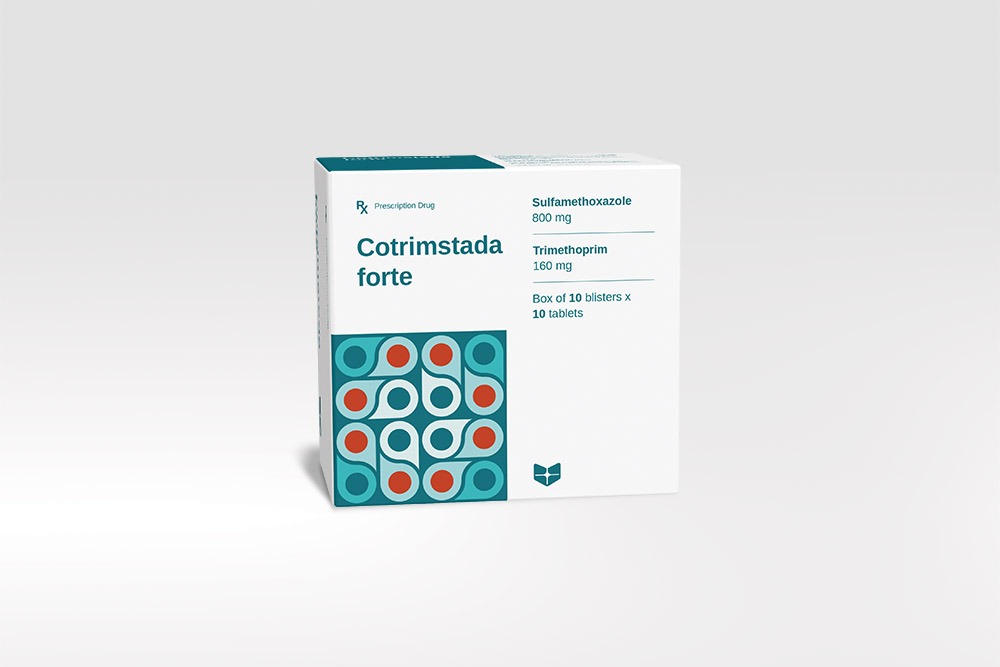Indications:
Acute otitis media, chronic or recurrent urinary tract infections (UTIs) or prostatitis, respiratory tract infections, gastrointestinal infections, brucellosis, cholera, plague, Pneumocystis jiroveci (Pneumocystis carinii) pneumonia, toxoplasmosis.
Dosage:
Dosage of cotrimoxazole is expressed in terms of the trimethoprim content.
Acute otitis media in children 2 months of age or older: 8 mg/kg daily, in 2 divided doses every 12 hours, in 10 days.
Chronic or recurrent urinary tract infections (UTIs) or prostatitis in adults: 1 tablet, twice daily x 10 – 14 days (chronic or recurrent UTIs) or x 3 – 6 months (prostatitis).
Prevention of chronic or recurrent UTIs:
- Adults: 40 – 80 mg daily or 3 times a week, in 3 – 6 months;
- Children 2 months of age or older: 8 mg/kg daily in 2 divided doses.
Respiratory tract infections in adults: 1 tablet, twice daily in 14 days.
Gastrointestinal infections by Shigella:
- Adults: 1 tablet, twice daily.
- Children: 8 mg/kg daily in 2 divided doses, in 5 days.
Brucellosis in children: 10 mg/kg daily (maximum 480 mg daily) in 2 divided doses, in 4 – 6 weeks.
Cholera:
- Adults: 1 tablet, twice daily in 3 days
- Children: 4 – 5 mg/kg x twice daily in 3 days, in conjunction with fluid and electrolyte replacement.
Prevention of plague:
- Adults: 2 – 4 tablets daily in 2 divided doses, in 7 days;
- Children 2 months of age or older: 8 mg/kg daily in 2 divided doses, in 7 days.
Pneumocystis jiroveci (Pneumocystis carinii) pneumonia (PCP):
- Treatment in adults and children 2 months of age or older: 15 – 20 mg/kg daily in 3-4 divided doses, in 14 – 21 days.
- Primary and secondary prevention: HIV infected adults and adolescents: 1 tablet, once daily; children, including HIV-infected: 150 mg/m2 in 2 divided doses, 3 consecutive days each week.
Primary prophylaxis of toxoplasmosis:
- Adults and adolescents: ½ – 1 tablet once daily.
- HIV-infected children: 150 mg/m2 daily, in 2 divided doses.
Renal impairment: Clcr < 15 ml/min (not recommend); Clcr: 15 – 30 ml/min (½ the usual regimen).
Usage:
Cotrimoxazole 800/160 is administered orally with some food or drink.



